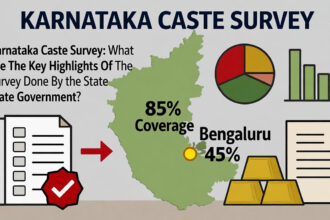For decades, India’s reservation system has been anchored in caste-based affirmative action, aiming to uplift historically marginalized communities. While this framework has addressed certain disparities, recent data, particularly from Bihar’s 2023 caste-based survey, reveals that economic hardship transcends caste boundaries. This underscores the urgency to pivot towards a need-based reservation system that prioritizes economic vulnerability over caste identity.
Unveiling the Socioeconomic Realities
1. Poverty Among Upper Castes
-
Contrary to the perception of universal affluence among upper castes, the survey indicates that 25.09% of families in the General Category live below the poverty line (earning less than ₹6,000 per month).
-
Within this group, Bhumihars exhibit the highest poverty rate at 27.58%, followed by Brahmins (25.32%), Rajputs (24.89%), and Kayasthas (13.38%).
2. Educational Disparities
-
Only 7% of Bihar’s overall population are graduates, with less than 1% holding postgraduate degrees.
-
Among upper castes, 13.41% are graduates, which, while higher than other groups, still indicates significant educational challenges.
3. Migration Trends
-
Approximately 9.98% of the Hindu upper-caste population has migrated out of Bihar, a higher rate compared to 5.39% among OBCs and 3.9% among EBCs.
4. Housing Conditions
-
About 26.76% of Bihar’s population lives in pucca houses with two or more rooms, while 22.37% reside in one-room pucca houses.
-
Approximately 25.54% live in tin-shed houses, and 0.24% have no houses.
5. Land Ownership
-
The 2013 Bihar Upper Caste Commission report highlighted that 55% of upper-caste individuals own less than one acre of land, challenging the perception of widespread land ownership among upper castes.
The Case for Need-Based Reservation
The data underscores that economic hardship is not confined to traditionally marginalized castes. Upper-caste individuals also face significant challenges, including poverty, limited education, and inadequate housing. A reservation system solely based on caste fails to address these nuances.
Advantages of Need-Based Reservation:
-
Equity Over Identity: Prioritizing economic need ensures that assistance reaches all disadvantaged individuals, regardless of caste.
-
Dynamic Assessment: Economic status can change over time, allowing for a more flexible and responsive reservation system.
-
Reducing Stigmatization: Focusing on economic criteria can mitigate the stigma associated with caste-based reservations.















